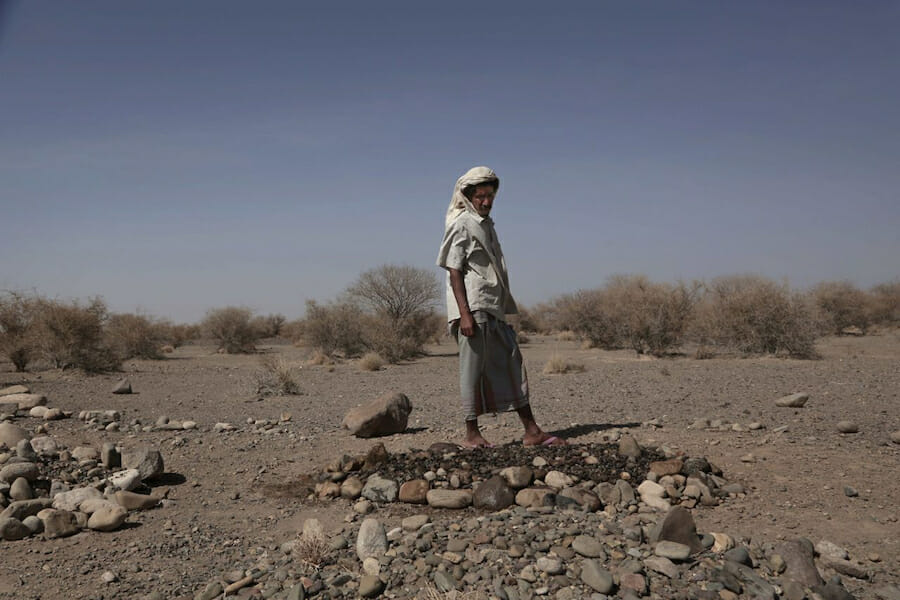
Rimbo Talks Can be a Catalyst for Future Yemeni Political Solution
The recent talks in Rimbo on the outskirts of the Swedish capital, Stockholm, were the first in two years in a conflict which has pushed impoverished Yemen to the brink of mass starvation. At the start of the talks Yemen’s government and rebels, locked in a devastating war for years, traded mutual accusations. Even the United Nations described these talks as “difficult” but “critical.” While the days leading up to the talks looked promising due to the confidence-building measures relating to the evacuation of wounded insurgents for medical treatment in Oman, the atmosphere between the two sides was tense as the talks opened.
United Nations officials involved in coordinating with both the sides tried to downplay expectations from the talks in Sweden, saying they don’t foresee rapid progress toward a political settlement but hope for at least some minor steps that would help to address Yemen’s worsening humanitarian crisis and prepare a framework for further negotiations. The UN has tried to mediate discussions between the Yemeni Government and the Ansar Allah (Official name of Houthi movement) in the past, hosting a meeting between the two parties back in 2016 in Kuwait. However, the meeting ended with both parties rejecting the UN’s proposals.
Fortunately, this time the discussions in Rimbo were more successful. After days of consultations both the Yemeni Government and the Houthi’s managed to reach some common ground and some sort of mutual understanding. Both parties have agreed to a mass prisoner swap which would see both sides exchange thousands of people they have detained over the last four years. Both the Yemeni government and the Houthi’s are preparing lists of people to be released. If this prisoner exchange is successful it will see as many as 15,000 people walk free. The warring sides have also agreed to cease fighting and will open humanitarian corridors in the city of Taiz, which has been a major battleground during the civil war. Taiz is one of Yemen’s most populated cities and due to the constant fighting has witnessed a high number of civilian casualties.
But the most important achievement of these peace talks is that both sides have agreed to withdraw forces from the port city of Hodeidah and to implement a ceasefire in the governorate. Hodeidah port, is a key gateway for aid and food imports in the country, feeding millions of severely hungry Yemenis. It should be noted that Yemen imports nearly all its food through Hodeidah port. This agreement will bring relief to the starving Yemeni people.
These measures will also establish a framework for further peace negotiations expected to take place next year. Whatever progress has been made in Sweden will act as an entry point to the political solutions in the future. Even the UN Special Envoy for Yemen, Martin Griffiths, said that these talks are not intended to achieve a political solution to the conflict but to introduce a set of confidence-building measures that could pave the way for more comprehensive peace talks in the near future. The next round of talks will need to include a wider range of topics, as called for by Yemenis across the political spectrum. At this point in time UN envoy, Mr. Griffiths appears to have successfully gained the trust of the main players which is very important in making sure that no major party becomes a spoiler. In addition to the Hadi government and the Houthis, he has also met with women’s groups, Southern separatist movement Southern Transitional Council (STC), Al-Islah, an important Islamist party, and both factions of the General People’s Congress. Mr. Griffiths should try to get all these groups involved in the coming future negotiations.
Yemen is a small and simple country. It is culturally homogenous and there are not many ethnic or cultural divisions. Yemenis are victims of decades of bad governance and hold a wide range of grievances that have led to an entrenched sense of marginalization across the country. The current conflict is the direct result of these long-standing grievances. Providing basic services and meeting the most basic needs of the population is key to future legitimacy. Moreover, the civil war in Yemen is a multipolar conflict (with regional and local components) rather than a clear-cut fight between two sides. Above all, this situation is also the result of an increasingly corrupt central state that became incapable of enforcing the rule of law and unwilling to incorporate various actors.
This can be corrected by introducing federalism in the governance so that it can overcome one centre of power and the country’s wealth can be distributed fairly among everyone. The global community and regional states should use their influence to facilitate a negotiated settlement, rather than fan the flames of war. It is to the benefit of everyone that Yemen remain stable and peaceful as unstable and war-torn Yemen will remain a haven for terrorist groups like Al Qaeda in the Arabian Peninsula (AQAP) and the Islamic State of Iraq and the Levant (ISIL). But at the end of the day, it may sound trite, only a Yemeni-led, Yemeni-owned solution can work. Outside actors can only be the facilitators.
